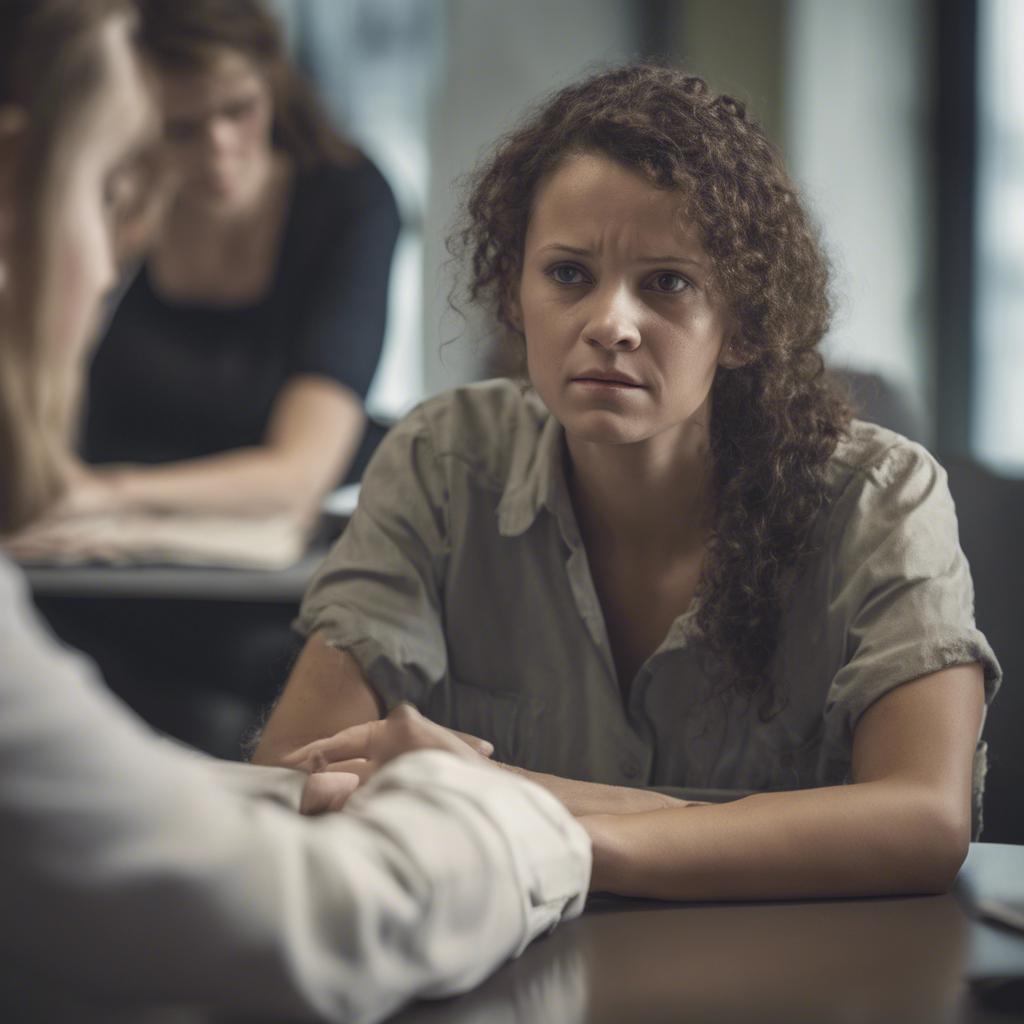Empathetic Responses to Traumatic Stories: How to Support and Validate Survivors
- Auntie Dearest

- Aug 6, 2024
- 4 min read
Hey, so nowadays, more people are opening up about their tough experiences because mental health is becoming less taboo. It's super important to show empathy to survivors as it can really help them heal. Empathy means understanding and sharing someone's feelings, which can make them feel supported and listened to as they work through their healing journey.
Empathy isn't just about hearing someone's story; it's about really connecting with their emotions. By empathizing with survivors, we acknowledge their feelings and the impact of their experiences, which can be a big deal in their healing process.
When we actively listen to survivors, we show empathy. This means giving our full attention, using body language to show we get it, and summarizing what they've shared to make sure we're on the same page. Active listening helps create a safe space for survivors to speak up without worrying about being judged.
To support survivors effectively, we need to strike a balance between empathy, understanding, and respect. This involves being non-judgmental, showing care, and offering help when needed. By practicing empathy and active listening, we can really make a difference in survivors' emotional well-being and resilience as they work through their trauma recovery.
The Power of Empathy in Trauma Processing
Empathy is like putting yourself in someone else's shoes and really getting how they feel. It's super important for helping people who have been through tough stuff. It's more than just feeling sorry for them - it's about truly connecting emotionally, listening carefully, and understanding the pain they're going through. When someone opens up about their trauma, responding with empathy makes them feel safe, heard, and supported. This not only acknowledges what they've been through but also helps them piece themselves back together and trust others again.
Empathy is also like a bridge that brings people together, no matter their differences, creating a bond of solidarity and care. It helps the survivor feel less alone in their suffering and more part of a community that values their story. By showing empathy, we not only validate their emotions but also give them the strength to navigate their healing journey.
Plus, empathy is a game-changer in breaking down the walls and stigma around trauma. When we respond with empathy, we're fighting false ideas and building a culture of support and understanding for survivors. It sparks honest conversations, reduces shame, and makes survivors feel like they belong and are accepted, even after going through unimaginable hardships.
Active Listening Techniques: A Path to Empathy
So, active listening isn't just about hearing words, but really getting what's behind them, you know? It's all about giving your full attention to the person talking, both with your words and your body language, to show that you're totally there in the moment. It's not just about waiting for your turn to talk, but about understanding where the other person is coming from without any judgment. When we practice active listening, we can make our relationships stronger, build trust, and feel more connected to others.
Another key thing about active listening is to give feedback that shows you've really understood what the other person is saying. You can do this by paraphrasing, summarizing, or asking questions to make sure you've got the gist of it. By reflecting back what the other person said in a thoughtful way, you're showing that you're really engaged in the conversation and that you care about their thoughts and feelings.
And, you know, active listening means paying attention to both what's said and what's not said. By noticing the speaker's tone, body language, and facial expressions, you can get a sense of their emotions and respond in a way that makes sense. By picking up on these cues, you can empathize better and offer real support.
So, in a nutshell, active listening is a super useful tool for building connections, making relationships deeper, and promoting understanding. By working on this skill, we can make a kinder, more empathetic world where everyone feels truly listened to and appreciated.
Maintain Eye Contact : Show attentiveness and respect by making eye contact with the survivor, conveying your undivided focus on their narrative.
Reflective Listening : Repeat back what the survivor has shared in your own words to ensure understanding and to validate their feelings.
Ask Open-Ended Questions : Encourage the survivor to elaborate on their experiences by asking open-ended questions that invite deeper reflection and expression.
Ways to Validate and Support Survivors
Validating a survivor's experiences is essential in promoting healing and empowerment. Here are some effective ways to validate and support survivors:
Believe Them : Start by believing the survivor's story without judgment or skepticism. Trusting their truth is a powerful form of validation.
Express Empathy : Show empathy through your words and actions, conveying compassion and understanding towards the survivor's emotions.
Offer Emotional Support : Provide comfort and reassurance, letting the survivor know that they are not alone and that you are there to support them.
Respect Boundaries : Respect the survivor's boundaries and pace of sharing. Avoid pressuring them to divulge details they are not ready to discuss.

In conclusion, empathetic responses are key to supporting and validating survivors as they navigate the challenging terrain of trauma recovery. By honing our active listening skills, practicing empathy, and offering unwavering support, we can create a nurturing environment where survivors feel heard, understood, and empowered. Let us commit to being compassionate allies in the healing journey of those who bravely share their stories of survival.
Remember, your empathy can be a guiding light in someone's darkest moments.



Comments